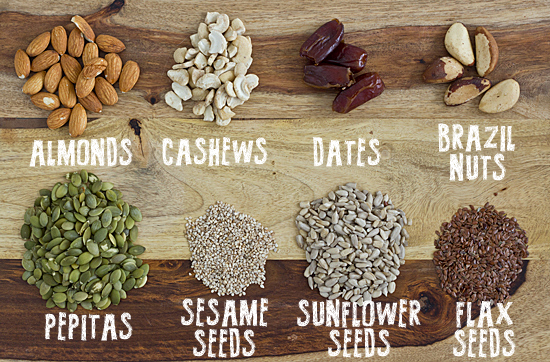Magnesium……and super health! Tired, depressed, high blood pressure, heart disease, restless legs? You might need magnesium…
 Up to 80% of Americans have very low levels of magnesium! Do you? You can ask your physician to order the lab “RBC Mg” to get the most accurate reading of your own magnesium level.
Up to 80% of Americans have very low levels of magnesium! Do you? You can ask your physician to order the lab “RBC Mg” to get the most accurate reading of your own magnesium level.
 What does magnesium do for us? Magnesium helps to regulate many biochemical reactions – such as protein synthesis, muscle and nerve function, blood sugar control, and the regulation of blood pressure. Magnesium is a key player in the production of energy in our bodies! It helps to build and maintain bone health (can help to prevent osteoporosis) and is even required for the synthesis of DNA! Magnesium is also important in maintaining a normal heart rhythm.
What does magnesium do for us? Magnesium helps to regulate many biochemical reactions – such as protein synthesis, muscle and nerve function, blood sugar control, and the regulation of blood pressure. Magnesium is a key player in the production of energy in our bodies! It helps to build and maintain bone health (can help to prevent osteoporosis) and is even required for the synthesis of DNA! Magnesium is also important in maintaining a normal heart rhythm.
Why do we need to know our magnesium level? Mary Ackerley, MD, a leading psychiatrist who practices Functional Psychiatry and is certified in the leading edge treatment of mold illness, explains that there are links between magnesium and blood pressure and anxiety, depression, headaches and migraines, twitches, and restless legs. “Heavy stress depletes magnesium levels, as do the following drugs – stomach acid blockers, steroids, BCP’s, Insulin, Digitalis, antibiotics and diuretics.”
What are the good food sources of magnesium? Do you like nuts (think almonds, cashews and peanuts)?
Dr. Ackerley teaches us that you can boost your magnesium level if you increase your intake of leafy green vegetables, and grains and seeds. Spinach is especially high in magnesium along with the nuts, shredded wheat, black beans and edamame.
“Vegetables, nuts and seeds grown organically in enriched soil have about twice the level of magnesium that inorganically grown produce does.”

Who is most at risk of low magnesium levels? Men over the age of 71, and teenage girls seem to have the lowest intake. Health conditions also are a major contributor to low levels:
- GI conditions such as celiac disease, inflammatory bowel issues, some stomach bypass conditions, and Crohn’s disease
- Type 2 diabetes
- Alcoholism
Want to learn more about this wonderful mineral? Click on the links above…
 Up to 80% of Americans have very low levels of magnesium! Do you? You can ask your physician to order the lab “RBC Mg” to get the most accurate reading of your own magnesium level.
Up to 80% of Americans have very low levels of magnesium! Do you? You can ask your physician to order the lab “RBC Mg” to get the most accurate reading of your own magnesium level.
 What does magnesium do for us? Magnesium helps to regulate many biochemical reactions – such as protein synthesis, muscle and nerve function, blood sugar control, and the regulation of blood pressure. Magnesium is a key player in the production of energy in our bodies! It helps to build and maintain bone health (can help to prevent osteoporosis) and is even required for the synthesis of DNA! Magnesium is also important in maintaining a normal heart rhythm.
What does magnesium do for us? Magnesium helps to regulate many biochemical reactions – such as protein synthesis, muscle and nerve function, blood sugar control, and the regulation of blood pressure. Magnesium is a key player in the production of energy in our bodies! It helps to build and maintain bone health (can help to prevent osteoporosis) and is even required for the synthesis of DNA! Magnesium is also important in maintaining a normal heart rhythm.
Why do we need to know our magnesium level? Mary Ackerley, MD, a leading psychiatrist who practices Functional Psychiatry and is certified in the leading edge treatment of mold illness, explains that there are links between magnesium and blood pressure and anxiety, depression, headaches and migraines, twitches, and restless legs. “Heavy stress depletes magnesium levels, as do the following drugs – stomach acid blockers, steroids, BCP’s, Insulin, Digitalis, antibiotics and diuretics.”
What are the good food sources of magnesium? Do you like nuts (think almonds, cashews and peanuts)?
Dr. Ackerley teaches us that you can boost your magnesium level if you increase your intake of leafy green vegetables, and grains and seeds. Spinach is especially high in magnesium along with the nuts, shredded wheat, black beans and edamame.
“Vegetables, nuts and seeds grown organically in enriched soil have about twice the level of magnesium that inorganically grown produce does.”

Who is most at risk of low magnesium levels? Men over the age of 71, and teenage girls seem to have the lowest intake. Health conditions also are a major contributor to low levels:
- GI conditions such as celiac disease, inflammatory bowel issues, some stomach bypass conditions, and Crohn’s disease
- Type 2 diabetes
- Alcoholism
Want to learn more about this wonderful mineral? Click on the links above…





Recent Comments